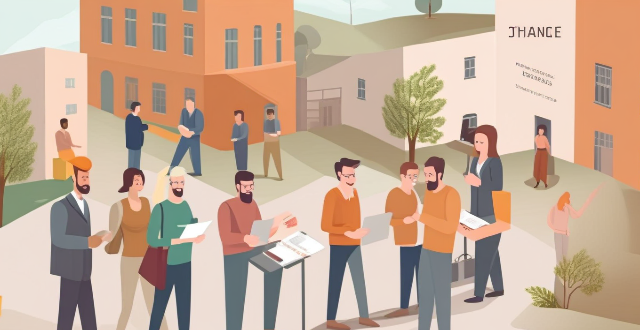Climate change has a significant impact on job opportunities across various industries. In agriculture, changes in temperature and precipitation patterns can decrease crop yields, increase pest management needs, and create demand for water management professionals. Extreme weather events can create more work for construction workers involved in rebuilding and repair efforts, while the push towards sustainable building practices creates new job opportunities in green construction and design. The shift away from fossil fuels towards renewable energy sources like wind and solar creates new jobs in manufacturing, installation, and maintenance. Demand for energy-efficient buildings and appliances leads to job opportunities in design, engineering, and installation. As investors increasingly prioritize sustainability, there is a growing need for financial professionals who specialize in green investments. The risk of climate-related disasters affects the insurance industry, leading to job opportunities in risk assessment and underwriting. Increased temperatures and changes in weather patterns can lead to the spread of diseases, creating job opportunities in public health and disease control. Climate change can exacerbate mental health issues, leading to increased demand for mental health professionals. As tourists become more environmentally conscious, there is a growing need for professionals in conservation and ecotourism. The tourism industry must adapt to changing weather patterns, leading to job opportunities in planning and management. The transition to electric vehicles and other alternative fuels creates job opportunities in manufacturing, maintenance, and infrastructure development. Efforts to make transportation infrastructure more resilient to climate impacts lead to job opportunities in engineering and construction. The need for education on climate change creates job opportunities in curriculum development, teaching, and research. As industries adapt to climate change, there is a growing demand for training programs to equip workers with the necessary skills and knowledge. Governments around the world are developing policies to address climate change, creating job opportunities in policy development, implementation, and evaluation. The increased frequency of climate-related disasters leads to job opportunities in emergency response and management.

How Does Climate Change Affect Job Opportunities in Various Industries?
Climate change has far-reaching effects on the global economy, and job opportunities are no exception. Here's a detailed look at how climate change affects job opportunities in various industries:
Agriculture
* Crop Yields: Changes in temperature and precipitation patterns can lead to decreased crop yields, affecting jobs in farming and related industries.
* Pest Management: Warmer temperatures may increase the prevalence of pests, requiring more workers in pest management.
* Water Management: Droughts and floods caused by climate change can lead to increased demand for water management professionals.
Construction
* Extreme Weather Events: Increased frequency and intensity of extreme weather events can create more work for construction workers involved in rebuilding and repair efforts.
* Green Building: The push towards sustainable building practices creates new job opportunities in green construction and design.
Energy
* Renewable Energy: The shift away from fossil fuels towards renewable energy sources like wind and solar creates new jobs in manufacturing, installation, and maintenance.
* Energy Efficiency: Demand for energy-efficient buildings and appliances leads to job opportunities in design, engineering, and installation.
Finance
* Investment in Green Technologies: As investors increasingly prioritize sustainability, there is a growing need for financial professionals who specialize in green investments.
* Insurance: The risk of climate-related disasters affects the insurance industry, leading to job opportunities in risk assessment and underwriting.
Health Care
* Public Health: Increased temperatures and changes in weather patterns can lead to the spread of diseases, creating job opportunities in public health and disease control.
* Mental Health: Climate change can exacerbate mental health issues, leading to increased demand for mental health professionals.
Tourism
* Environmental Conservation: As tourists become more environmentally conscious, there is a growing need for professionals in conservation and ecotourism.
* Adaptation to Climate Change: The tourism industry must adapt to changing weather patterns, leading to job opportunities in planning and management.
Transportation
* Alternative Fuels: The transition to electric vehicles and other alternative fuels creates job opportunities in manufacturing, maintenance, and infrastructure development.
* Infrastructure Resilience: Efforts to make transportation infrastructure more resilient to climate impacts lead to job opportunities in engineering and construction.
Education
* Climate Change Education: The need for education on climate change creates job opportunities in curriculum development, teaching, and research.
* Training Programs: As industries adapt to climate change, there is a growing demand for training programs to equip workers with the necessary skills and knowledge.
Government
* Policy Development: Governments around the world are developing policies to address climate change, creating job opportunities in policy development, implementation, and evaluation.
* Disaster Response: The increased frequency of climate-related disasters leads to job opportunities in emergency response and management.
In conclusion, climate change affects job opportunities across various industries by creating new roles, altering existing ones, and even eliminating some positions. It is essential for individuals and organizations to adapt to these changes to ensure long-term success in the face of climate change.